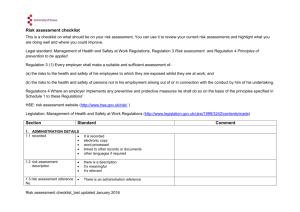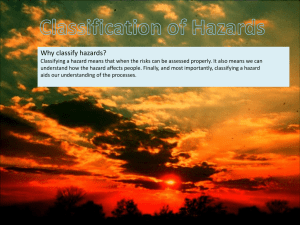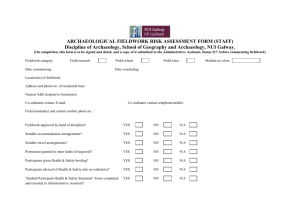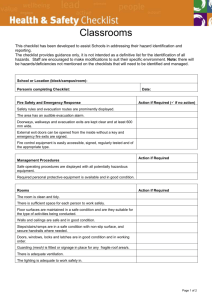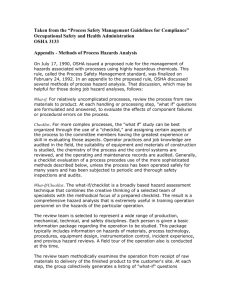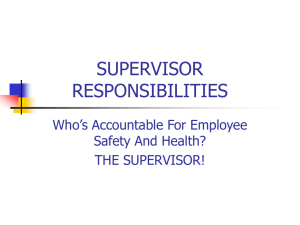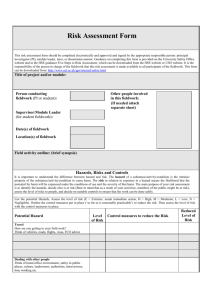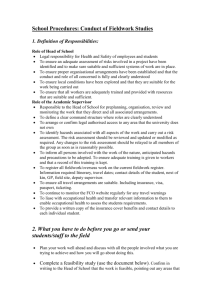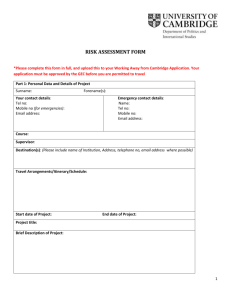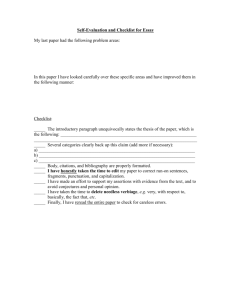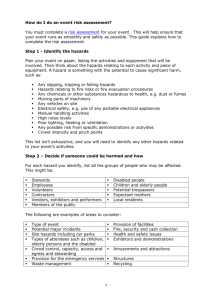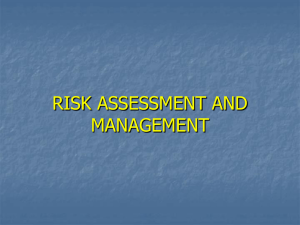Field Trip Hazard Identification Checklist
advertisement
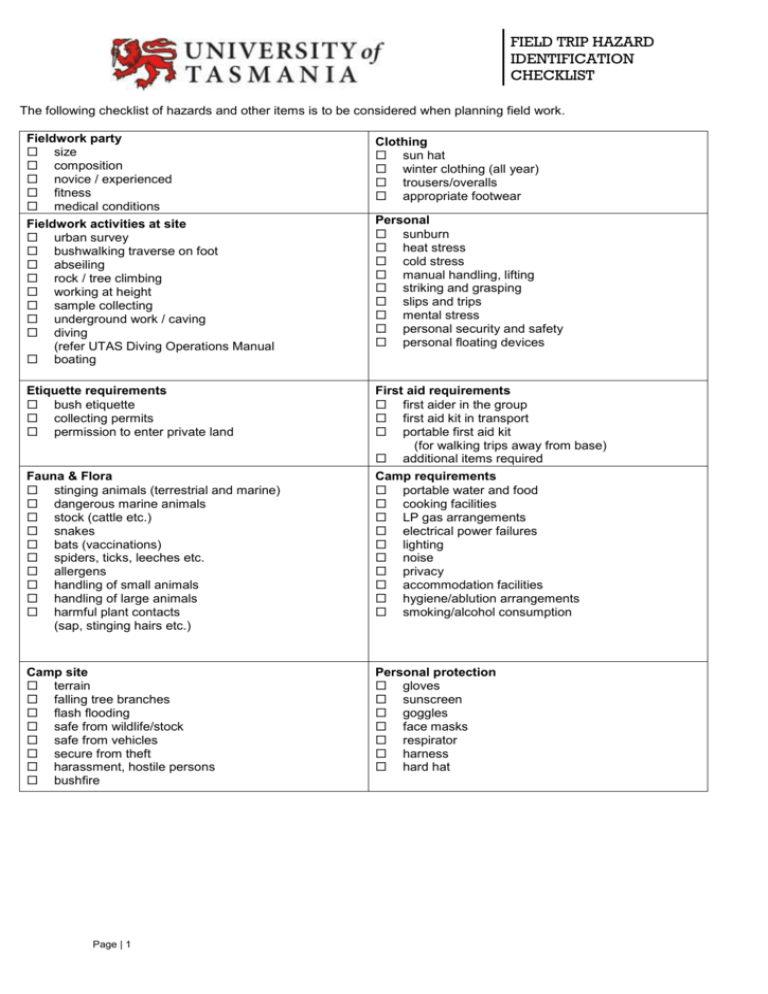
FIELD TRIP HAZARD IDENTIFICATION CHECKLIST The following checklist of hazards and other items is to be considered when planning field work. Fieldwork party size composition novice / experienced fitness medical conditions Fieldwork activities at site urban survey bushwalking traverse on foot abseiling rock / tree climbing working at height sample collecting underground work / caving diving (refer UTAS Diving Operations Manual boating Clothing sun hat winter clothing (all year) trousers/overalls appropriate footwear Etiquette requirements bush etiquette collecting permits permission to enter private land First aid requirements first aider in the group first aid kit in transport portable first aid kit (for walking trips away from base) additional items required Camp requirements portable water and food cooking facilities LP gas arrangements electrical power failures lighting noise privacy accommodation facilities hygiene/ablution arrangements smoking/alcohol consumption Fauna & Flora stinging animals (terrestrial and marine) dangerous marine animals stock (cattle etc.) snakes bats (vaccinations) spiders, ticks, leeches etc. allergens handling of small animals handling of large animals harmful plant contacts (sap, stinging hairs etc.) Camp site terrain falling tree branches flash flooding safe from wildlife/stock safe from vehicles secure from theft harassment, hostile persons bushfire Page | 1 Personal sunburn heat stress cold stress manual handling, lifting striking and grasping slips and trips mental stress personal security and safety personal floating devices Personal protection gloves sunscreen goggles face masks respirator harness hard hat FIELD TRIP HAZARD IDENTIFICATION CHECKLIST FIELD TRIP HAZARD IDENTIFICATION CHECKLIST - continued The following checklist of hazards and other items is to be considered when planning field work Transport vehicles boats aircraft driver licensing driver training unsealed/off road Communication between participants with locals with authorised contact person mobile phone Satellite phone EPERB Fire risks extinguisher campfires combustibles fire bans and permits Navigation route selection location determination direction determination Urban dogs hostile or violent persons personal valuables/theft Overseas fieldwork disease vaccinations political climate insurance SOS Radiation hazards ionising - sealed / unsealed sources laser radiofrequency Mechanical hazards vehicles machinery/moving equipment vibration pressure equipment generation of dust Fire and Explosion flammable substances explosives Electrical high voltage equipment hand held or small electrical devices 240v electrical equipment Page | 2 Tides and Weather tide data Meteorological. bureau forecasts radio broadcasts Chemicals/Hazardous Substances carcinogens, genotoxins (mutagens, teratogens) sensitising agents corrosive agents irritants toxic harmful substances (poisons) solvents SDS available dangerous goods transport storage of hazardous substances (secured) spill or decontamination kit Thermal hazards cryogenic fluids hypothermia heatstroke Other specify
